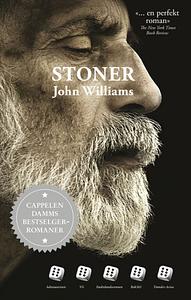You need to sign in or sign up before continuing.
Take a photo of a barcode or cover
dark
emotional
mysterious
reflective
sad
slow-paced
Plot or Character Driven:
A mix
Strong character development:
Yes
Loveable characters:
Yes
Diverse cast of characters:
Complicated
Flaws of characters a main focus:
Yes
challenging
emotional
reflective
sad
medium-paced
Plot or Character Driven:
Character
Strong character development:
Complicated
Loveable characters:
No
Diverse cast of characters:
No
Flaws of characters a main focus:
Complicated
emotional
informative
reflective
sad
medium-paced
Plot or Character Driven:
Character
Strong character development:
Complicated
Loveable characters:
Yes
Diverse cast of characters:
No
Flaws of characters a main focus:
No
emotional
reflective
relaxing
sad
medium-paced
Plot or Character Driven:
Character
Strong character development:
Complicated
Loveable characters:
Yes
Diverse cast of characters:
No
Flaws of characters a main focus:
No
Stoner at first seems like a quiet celebration of an ordinary, unevenful life. But it isn’t really a celebration at all. On the surface, it tells the subtle tragedy of a class transition, as a poor farm boy climbs into academia and becomes a professor. At its core, though, it's the story of a man who fails at almost everything: marriage, fatherhood, career, even the one love that mattered. He never fights back, never breaks the script, just accepts it all with a kind of stoic integrity, with the patience of someone waiting for a train that never comes.
Reading this book felt like watching someone fade in real time, and yet I couldn't look away, maybe because in that fading I saw all the fears I try not to name. Drifting without connection, being forgotten, mistaking endurance for meaning etc. And by the end, I felt gutted. Because John Williams made me see that a life can slip by in silence, with no one noticing, that maybe endurance isn't the same as meaning.
And yet, the story isn't completely bleak. Stoner actually had a better life than most. He had literature. He had teaching. He had moments of love, however brief. His life wasn't what he imagined, but he lived. He lived it with resigned dignity and an almost deliberate grace. And maybe that’s the point --that small, fleeting connections to what we love can still make a life worth living.
The pared-down prose in this book is dry, almost academic, yet it carries an intimacy that feels both devastating and strangely consoling, like John Williams is whispering truths I don’t want to hear but somehow need to. It’s deeply depressing, yes, but it's also one of the most honest things I’ve ever read.
"Love is not an end but a process through which one person attempts to know another."
“In his extreme youth Stoner had thought of love as an absolute state of being to which, if one were lucky, one might find access; in his maturity he had decided it was the heaven of a false religion, toward which one ought to gaze with an amused disbelief, a gently familiar contempt, and an embarrassed nostalgia. Now in his middle age he began to know that it was neither a state of grace nor an illusion; he saw it as a human act of becoming, a condition that was invented and modified moment by moment and day by day, by the will and the intelligence and the heart.”
dark
emotional
reflective
sad
tense
medium-paced
sad
slow-paced
Plot or Character Driven:
Character
Strong character development:
Yes
Loveable characters:
Complicated
need to give this one another try some other time.. brain wasn't braining






